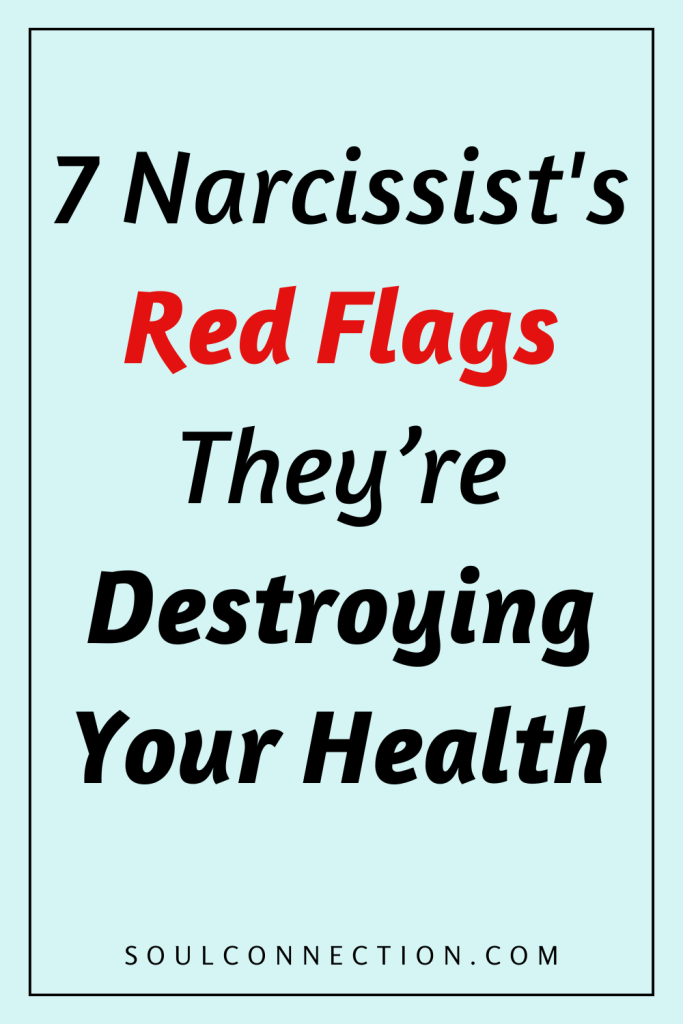Ever get the feeling your relationship is less “happily ever after” and more “psychological boot camp”?
If you’re always exhausted, anxious, or walking on eggshells, it might be less about your coffee habit and more about the soul-sucking magic of a narcissist in your orbit.
Before you blame your lack of pep on the weather or your mother-in-law’s lasagna, consider this: some partners aren’t just difficult—they’re dangerous to your mental and physical health.
Let’s take a look at seven undeniable warning signs your narcissist is causing havoc with your wellbeing. Grab a cup of tea (or something stronger), and see how many boxes get ticked.
1. Gaslighting That Makes You Feel Like You’re Losing Your Mind
A classic favorite in the narcissist’s toolkit. Gaslighting isn’t just a catchy buzzword—it’s a full-time sport. Every time you bring up a concern, they twist reality until you’re questioning your own memory, perceptions, and sense of self.
Did you really forget your anniversary, or did they just convince you it’s February in July?
If you find yourself triple-checking your sanity, apologizing for things you never did, or keeping a diary to prove to yourself what’s real, your stress levels are probably through the roof.
This chronic self-doubt doesn’t just erode confidence; it keeps your body in a constant state of fight-or-flight, which is a lovely way of inviting headaches, insomnia, and even digestive issues to the party.
2. Emotional Rollercoasters That Wreck Your Nervous System
Narcissists love drama the way toddlers love glitter—everywhere, all the time, impossible to clean up. One minute you’re being worshipped on a pedestal, the next you’re being dropped in the emotional gutter.
The highs are euphoric, but the lows? Utterly devastating.
This whiplash isn’t just exhausting—it’s physically harmful. Your cortisol (that lovely stress hormone) gets a daily workout, and your body doesn’t get a chance to recover.
Over time, these cycles can leave you feeling perpetually anxious, jumpy, and burnt out. Your heart rate might spike at the sound of a text notification. Not exactly the fairy tale you signed up for.
3. Isolation From Friends and Family
At first, it might seem adorable that they want to spend all their time with you. How romantic! Next thing you know, your social circle is shrinking faster than your will to meal-prep.
Narcissists excel at nudging you away from anyone who might actually care about your wellbeing or—god forbid—challenge their influence.
Before long, your support system is a distant memory, replaced by a one-person audience that only applauds when you play your role properly. Social isolation is a proven risk factor for depression, anxiety, and even physical illness.
Turns out, dinner with your mates isn’t just fun—it’s practically medicinal.
4. Constant Criticism Disguised as “Helpful Feedback”
If your partner finds fault with everything from your driving to your breathing, you’re not cursed with chronic incompetence—you’re probably dating a narcissist.
The criticism never lets up, but it’s always wrapped in that charming veneer of “just trying to help.” How thoughtful.
Over time, this kind of relentless nitpicking chips away at self-esteem until you feel lucky just to be tolerated. Living in a state of perpetual self-doubt can lead to anxiety disorders, depression, and stress-related physical symptoms.
Not to mention, you might start avoiding things you once enjoyed just to avoid another lecture.
5. Boundaries? What Boundaries?
Healthy relationships thrive on mutual respect for personal limits. With a narcissist, boundaries are mere suggestions—easily ignored, always negotiable, and absolutely not respected when they get in the way of what the narcissist wants.
Maybe your texts get read without permission, your privacy evaporates, or your alone time is treated like a personal affront. The constant violation of boundaries teaches your nervous system to always be on red alert.
Never feeling safe or respected? That’s a shortcut to chronic stress, sleep problems, and even immune issues. Who knew love could feel so much like a siege?
6. Your Needs Are Always On the Back Burner
In Narcissist-Land, their wants, moods, and whims take center stage. Your needs? Well, those are cute. But can you keep them down to a gentle simmer, please?
The expectation is clear: you exist to meet their needs, not the other way around.
Neglecting your own needs, whether it’s emotional support, affection, or just a decent night’s sleep, takes a toll on your body and mind.
Over time, this pattern can morph into chronic illness, anxiety, depression, and a gnawing sense of emptiness. Self-care starts to feel selfish, which is exactly how they like it.
7. Manipulation That Has You Doubting Reality
A narcissist’s talent for manipulation is worthy of an Oscar. They’ll spin stories, shift blame, play the victim, and twist every scenario until you’re not sure which way is up.
These mind games are exhausting—mentally, emotionally, and physically.
The struggle to keep up with their changing narratives can leave you feeling perpetually off-balance, anxious, and unable to trust your own instincts.
Over time, this undermines your sense of agency, leaving you trapped in a cloud of confusion and self-blame. Chronic stress, migraines, and a weakened immune system find an easy target.
What To Do When the Red Flags Start Piling Up
Spotting these red flags is equal parts validating and deeply unsettling. If you’re counting more than a couple, your health might already be taking a hit.
Good news: you’re not actually losing your mind, and it’s possible to reclaim your life—and your health.
Here are practical steps that can help:
1. Write it down. Keeping a private log (password-protected, if possible) of what happens helps you stay grounded in reality. When the gaslighting starts, you’ll have receipts.
2. Find your people. Reconnecting with friends, family, or a support group—even online—can remind you that you’re not alone, and you’re not crazy.
3. Draw a line in the sand. Boundaries aren’t just for toddlers and public pools. Decide what’s not negotiable, communicate it clearly, and stick to it. Your partner’s reaction will tell you a lot.
4. Listen to your body. If you’re constantly sick, tired, or anxious, that’s not just life being “busy.” Chronic stress is real, and your body keeps the score.
5. Seek professional help. Working with a therapist—preferably one who “gets” narcissism—can give you practical tools and fresh perspective. If you’re perpetually stuck in the blame-and-shame cycle, therapy is a lifeline.
6. Consider your exit plan. Sometimes, the healthiest thing you can do is walk away, even if the narcissist swears you’re the only person who truly understands them (spoiler: you’re not). Your wellbeing is worth more than their ego.
7. Prioritize self-care like your life depends on it. Because, honestly, it might. Whatever replenishes you—walks, naps, Netflix, time with friends—make it non-negotiable.
Reclaiming Your Peace (and Your Health)
Living with a narcissist is a health hazard, plain and simple. It’s not about weakness or failure—it’s about survival in a situation designed to drain you.
Spotting these red flags is the first step, but making changes, setting boundaries, and seeking support are what get you back to yourself.
Here’s to trading anxiety, exhaustion, and confusion for something far less dramatic. Like boring, glorious peace. Or a three-hour nap.
Either way, your sanity (and your body) will thank you.


